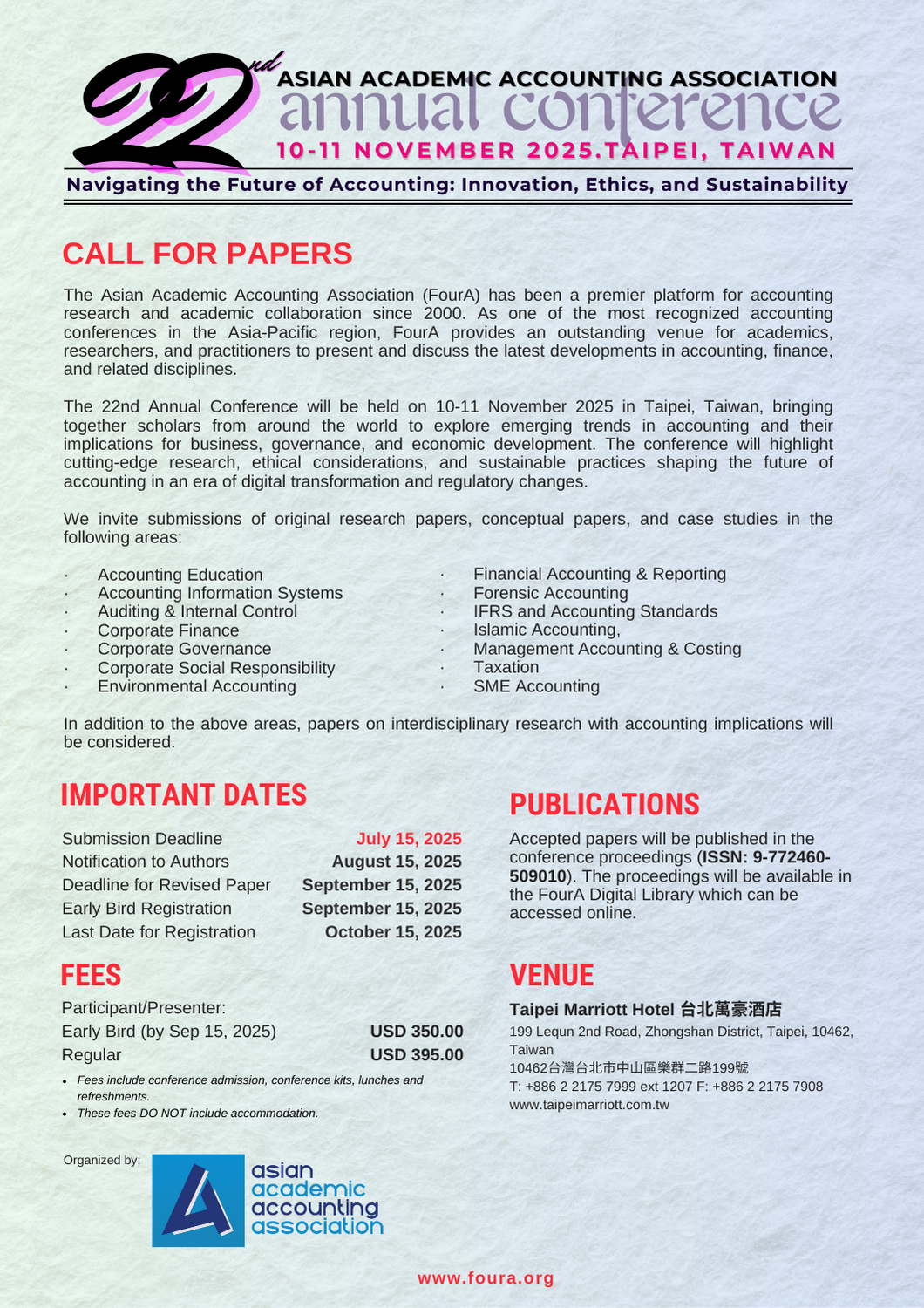Disclosure of the Going Concern Assumption and The Japanese Main Bank System
- Category: FourA 2017
- Author: Yuho Kusaka
-
Link:

Review
The purpose of this study is to consider whether the disclosure of note regarding the going concern assumption (hereafter, “GC note”) can trigger state-contingent governance by a main bank, and examine how state-contingent governance by a main bank influences borrowers’ accounting behavior. This study focuses on discretionary accruals for those firms that disclose a first-time GC note. Using a propensity score matching procedure, I find that such firms have negative discretionary accruals in proportion to the ratio of the main bank’s lending to firm’s total assets. These results can be considered consistent with Tan’s (2013) explanation —namely, that the transfer of control rights to the lender may make a borrower’s financial reporting more conservative. Various studies point out that debt covenant violation triggers the allocation of control rights (Christensen, Nikolaev and Wittenberg-Moerman, 2016; Tan, 2013). Given the current study’s findings, it may be that GC-note disclosure may also act as such a trigger.
Keywords: going concern, main bank system, control rights, discretionary accruals



